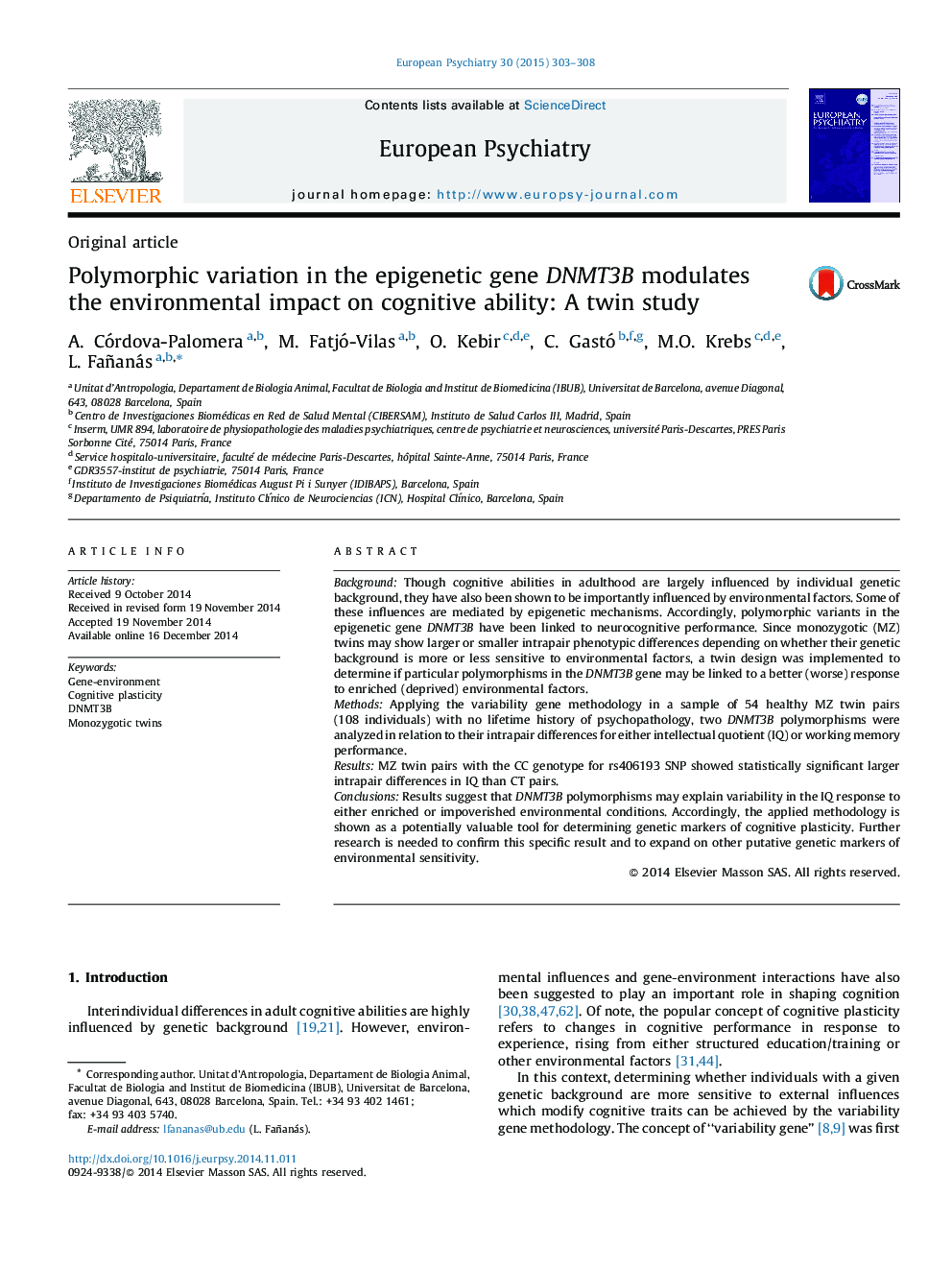| Article ID | Journal | Published Year | Pages | File Type |
|---|---|---|---|---|
| 6229306 | European Psychiatry | 2015 | 6 Pages |
BackgroundThough cognitive abilities in adulthood are largely influenced by individual genetic background, they have also been shown to be importantly influenced by environmental factors. Some of these influences are mediated by epigenetic mechanisms. Accordingly, polymorphic variants in the epigenetic gene DNMT3B have been linked to neurocognitive performance. Since monozygotic (MZ) twins may show larger or smaller intrapair phenotypic differences depending on whether their genetic background is more or less sensitive to environmental factors, a twin design was implemented to determine if particular polymorphisms in the DNMT3B gene may be linked to a better (worse) response to enriched (deprived) environmental factors.MethodsApplying the variability gene methodology in a sample of 54 healthy MZ twin pairs (108 individuals) with no lifetime history of psychopathology, two DNMT3B polymorphisms were analyzed in relation to their intrapair differences for either intellectual quotient (IQ) or working memory performance.ResultsMZ twin pairs with the CC genotype for rs406193 SNP showed statistically significant larger intrapair differences in IQ than CT pairs.ConclusionsResults suggest that DNMT3B polymorphisms may explain variability in the IQ response to either enriched or impoverished environmental conditions. Accordingly, the applied methodology is shown as a potentially valuable tool for determining genetic markers of cognitive plasticity. Further research is needed to confirm this specific result and to expand on other putative genetic markers of environmental sensitivity.
